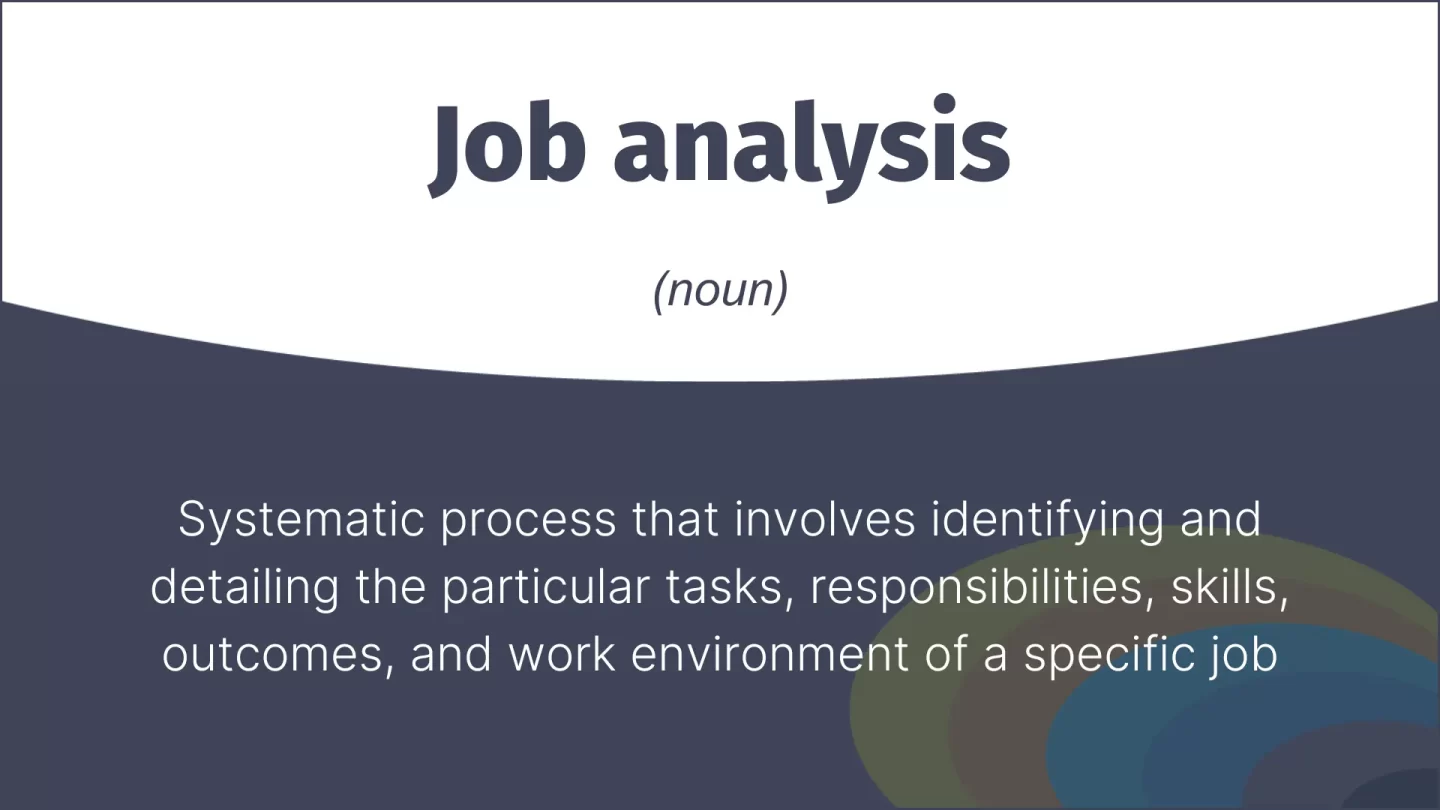Job analysis is the key to understanding what each position in a company involves. It looks at the duties, responsibilities, and skills needed for each role.
In the energy sector, job analysis can help improve hiring and training, leading to better performance and productivity. By matching the right people to the right jobs, companies can run more smoothly and efficiently.
This article explores how job analysis can benefit energy companies, offering HR professionals valuable tips on how to use it effectively and overcome challenges along the way.
What is job analysis?

Job analysis is a methodical approach to gathering information about job roles within an organization. It involves examining the specific duties, responsibilities, tasks, and qualifications required for a particular position. This process helps to define job expectations and identify the skills and competencies required to be successful in the role.
With a clear understanding of each job, organizations can make informed decisions about hiring, training, performance management, and compensation. At its simplest, job analysis is about clarifying what each job entails and what attributes are required for excellence in that job.
Methods of job analysis
There are several methods of job analysis that companies commonly use. The method you choose depends on your objective outcomes, the work environment and the specifics of the position.
Firstly, direct observation involves watching employees do their jobs and taking detailed notes on their duties, required skills, and materials used. This method analysis is useful for repetitive tasks and includes time and motion studies to measure efficiency and productivity.
Another method is an interview. Interviews with employees and supervisors can provide in-depth insights into job duties, working conditions, and necessary qualifications.
Questionnaires offer a structured approach to analysis, with detailed questions about different aspects of the position. Examples include the Position Analysis Questionnaire (PAQ) and Functional Job Analysis (FJA).
Lastly, internal and external research allows organizations to gather information from existing job postings, performance plans, training materials, and other companies’ job descriptions to gain a broader perspective on the role.
Benefits of job analysis in the energy sector
Job analysis offers benefits specific to the energy industry, enabling companies to excel in their operations and maintain high safety standards. One of the key benefits is targeted recruitment. By accurately defining the responsibilities and qualifications of each role, energy companies can attract candidates with the technical skills and industry experience needed to successfully complete complex projects.
In the energy sector, specialized training is crucial for safety and compliance. Job analysis identifies the specific skills and knowledge required for each role, ensuring that targeted training programs are developed to promote safety, efficiency, and align with industry standards.
Finally, job analysis aids in strategic workforce planning by forecasting future talent needs in the energy transition and aligning resources with business objectives. This proactive approach helps energy companies navigate industry shifts and invest in the expertise necessary to lead in a rapidly changing landscape.
Implementing analysis in recruitment strategies
To implement an analysis effectively, energy companies can follow these key steps:
Define clear job descriptions
Use job analysis to create detailed job descriptions outlining responsibilities, tasks, and required qualifications for each role.
Develop targeted interview questions
Prepare interview questions that assess specific skills, technical knowledge, and experiences relevant to the position.
Design focused assessments
Create tests or exercises that evaluate candidates’ abilities in areas critical to the job, such as problem-solving, safety practices, or specialized technical skills.
Streamline candidate screening
Use data from your analysis to establish essential criteria for screening candidates, ensuring only the most qualified individuals advance in the process.
Maintain industry alignment
Regularly update your analysis information to reflect current industry standards and trends, keeping recruitment strategies relevant and competitive.
Challenges and best practices
The implementation of job analysis in the energy sector presents a series of potential challenges. However, by following best practices, companies can effectively overcome these obstacles.
One challenge is the rapid pace of technological advancements, which can make it difficult to keep job roles and descriptions up to date. And cultural and linguistic differences may also influence how employees perform their jobs, communicate with others, or respond to feedback. Additionally, frequent regulatory changes may impact job requirements.
To overcome these challenges, companies could engage with employees in the analysis process. Gather employees’ insights, and communicate transparently about any changes. Some external resources like industry reports can also help you to understand new job roles and skills.
Job analysis is a crucial tool to help energy companies recruit and stay competitive in a fast-changing industry.



